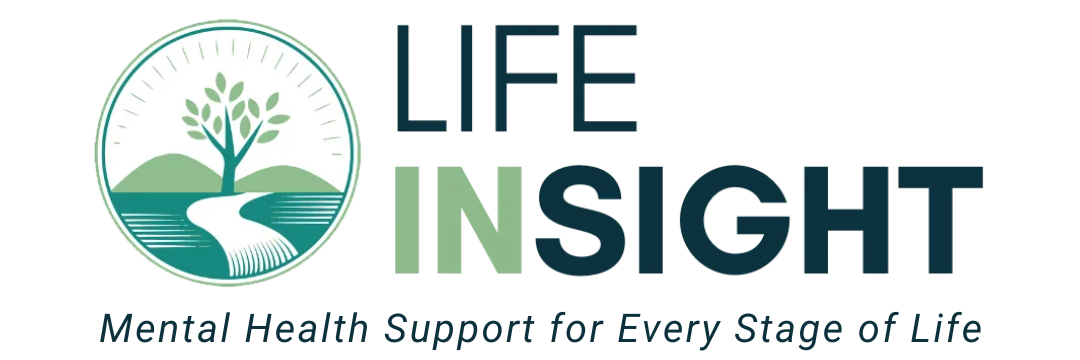Parent Training and Support: Why Therapy Isn’t Just for Kids
Life InSight
When a child is struggling—whether with ADHD, emotional outbursts, or behavioral challenges—many families turn to therapy looking for answers. What sometimes comes as a surprise is that the most meaningful change often starts not with the child but with the parents.
Therapy isn't just a space for kids to work things out. It can be a lifeline for the adults, guiding them through daily life. Especially when things feel overwhelming or chaotic, parent-focused support can provide clarity, calm, and real tools that make a difference.
Why Parent Training Matters
Kids don't grow and behave in a vacuum. The environment around them shapes their emotional world—and as parents, you're the biggest part of that environment.
Parent training is about more than managing meltdowns or enforcing routines. It's about helping caregivers understand how their child experiences the world, how to respond in effective and empathetic ways, and how to care for themselves along the way. When parents feel supported, kids do better. Period.
When Parent Therapy Can Help
There are no perfect families, but some situations make things feel especially tough. If any of these sound familiar, you're not alone—and support can help:
- Parenting a child with ADHD, where focus, regulation, and routine feel like daily battles
- Navigating co-parenting or stepfamily dynamics where roles and expectations get blurry
- Dealing with outbursts, defiance, or school behavior issues that feel bigger than you
In all of these scenarios, having a dedicated space for parents to sort through emotions, make a plan, and learn strategies can make a real difference.
What to Expect in Parent Training
Parent training isn't a lecture—it's a collaborative space designed around your needs. Some sessions may focus just on you. Others may include your child or the whole family.
What's covered depends on your unique situation but often includes:
- Coaching around communication and setting limits
- Tools for building routines that actually stick
- Emotional regulation—for both you and your child
- Practical strategies for school, home, and public settings
It's about shifting from reacting in the moment to responding with intention.
Is It Time to Seek Support?
It might be time if you're feeling constantly frustrated, exhausted, or unsure of what to do next. You don't need to wait until things fall apart to ask for help. Many parents find that support brings not only clarity but relief.
Parent training helps families function better, connect more deeply, and regain a sense of calm. And while it starts with you, the benefits ripple through your whole household.
Therapy isn't just for kids—it's for the people who love them, too. If you're ready to take a breath and get the support you need, we're here. Reach out today to learn how we can help.

Every April, Autism Awareness Month invites us to reflect—not just on challenges—but on opportunities. One of the most powerful, lasting investments we can make in a child's future is helping them build meaningful social connections. For kids and teens on the autism spectrum, the social world can be hard to navigate. Understanding unspoken rules, reading facial expressions, or knowing how to join a conversation doesn't always come naturally—and those gaps can impact friendships, confidence, and even independence. That's where social skills support comes in. Why Social Skills Support Is Essential Social success isn't just about fitting in. It's about understanding how to connect—and having the confidence to try. Many kids on the spectrum want to make friends but aren't sure how. Others may shy away from social situations because they feel unsure or overwhelmed. Unfortunately, traditional therapy or school settings don't always offer focused support for these challenges. A structured social skills program creates space to slow things down, practice key behaviors, and build relationships in a supportive, low-pressure environment. What Social Skills Programs Look Like Life InSight's social skills programs are built around real-life situations and age-appropriate goals. These aren't lectures. They're active, hands-on sessions where kids learn by doing—together. Here's what that might look like: Small group settings where peer modeling happens naturally Role-playing everyday situations like ordering food or joining a game Practicing turn-taking, conversation starters, reading body language, and managing conflict Opportunities to use new skills in real-world scenarios—with support These moments might seem small, but they build toward something bigger: the ability to connect, adapt, and thrive. Who Can Benefit Most While every child is different, we've seen social skills programs be especially valuable for: Kids who've been recently diagnosed and are starting their care journey Children moving into a new school phase (elementary to middle school, etc.) Those struggling with friendships, isolation, or anxiety in social settings Families whose IEPs or school supports aren't fully addressing social needs Even a few sessions can help unlock confidence and make group settings less intimidating. Why It Matters Long-Term When kids feel competent socially, it changes everything. They engage more in school. They experience less frustration and fewer behavioral outbursts. Their self-esteem grows. And perhaps most importantly, families feel more hopeful about their child's ability to build meaningful relationships—now and into adulthood. This Autism Awareness Month, let's commit to more than awareness. Let's take action. If you think your child could benefit from structured social skills support, we're here to guide the way. Let's build a connection—together.




